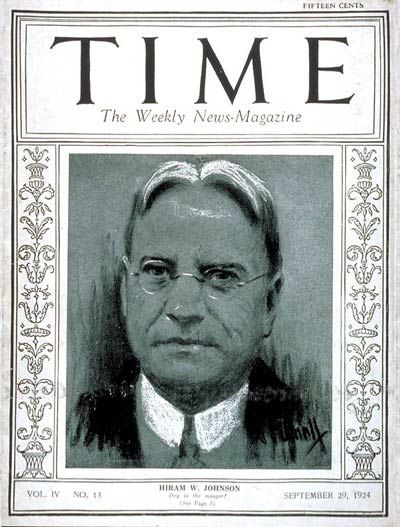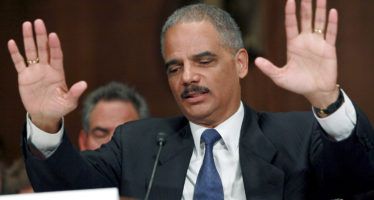Will Brown Hike Taxes w/o Election?
By JOHN SEILER
If you watch politics long enough, you see everything.
The latest is progressives acting like conservatives on the state budget deficit and the liberals’ desire to raise taxes $12 billion. Last week a PPIC poll showed the tax increases would get wiped out by voters. And the election would be more than two months off, at the earliest.
Solution: Don’t hold an election. The Legislature would just jack up taxes itself, as it did with Gov. Arnold Schwarzenegger’s 2009 tax increases.
It looks like the Democrats have given up on Democracy. Just recently, they were insisting, “The people have a right to vote. Republicans should just put the tax increases on the ballot, and let the people decide.” Now it’s, “This is too important for the people to decide.”
Columnist George Skelton writes of the matter today in a column headlined, “Brown shouldn’t leave hard choices to voters.” He quotes University of California, Irvine Law School Dean Erwin Chemerinsky:
“We elect representatives to make the laws,” he said. “It should be their responsibility to act in the best interests of the voters. If the voters don’t like what they do, they can be voted out of office.”
“It is unnecessary and undesirable to go to the voters,” added Chemerinsky, who worries particularly about a small turnout in a special election and potentially poor prospects for passage of the tax extension.
“The idea of cutting another $12 billion would be truly devastating to the state of California. And it’s the responsibility of the governor and Legislature to protect us from that.”
Conservatives Win After All?
Chemerinsky is a charming fellow and for a decade one of my sources on legal matters. But it’s amusing to hear him — and Skelton — sound like Russell Kirk, my old friend and teacher, who practically started the conservative movement in 1953 with his great book, “The Conservative Mind: From Burke to Eliot.”
Kirk, a Michigan native like me, really didn’t like Michigan’s initiative process, which is similar to California’s. He thought the people had their say on election day when electing legislators. The legislators then were supposed to use their best judgment in running the government. If the people didn’t like the results, they could replace the legislators in the next election.
Kirk’s political philosophy was based on Edmund Burke, the late 18th Century British statesman. Until about a century ago, Burke’s “Speech on Conciliation With America” was learned by heart by American schoolchildren. Kirk was fond of quoting from Burke’s “Speech to the Electors of Bristol“:
Certainly, gentlemen, it ought to be the happiness and glory of a representative to live in the strictest union, the closest correspondence, and the most unreserved communication with his constituents. Their wishes ought to have great weight with him; their opinion, high respect; theirbusiness, unremitted attention. It is his duty to sacrifice his repose, his pleasures, his satisfactions, to theirs; and above all, ever, and in all cases, to prefer their interest to his own. But his unbiassed opinion, his mature judgment, his enlightened conscience, he ought not to sacrifice to you, to any man, or to any set of men living. These he does not derive from your pleasure; no, nor from the law and the constitution. They are a trust from Providence, for the abuse of which he is deeply answerable. Your representative owes you, not his industry only, but his judgment; and he betrays, instead of serving you, if he sacrifices it to your opinion.
Progressive Reforms
Skelton, perhaps for lack of space, does not note that California went through the Progressive reforms of a century ago. Led by Hiram Johnson, California’s 27th governor from 1911 to 1917, the Progressives launched what today we would call a “throw the bums out” campaign. Their target was the fat-cat railroad barons and others who ran the state.
The result was a passel of Progressive reforms. The most important of which was “initiative, referendum and recall.”
As Johnson said in his First Inaugural Address, January 3, 1911:
When, with your assistance, California’s government shall be composed only of those who recognize one sovereign and master, the people, then is presented to us the question of, How best can we arm the people to protect themselves hereafter? If we can give to the people the means by which they may accomplish such other reforms as they desire, the means as well by which they may prevent the misuse of the power temporarily centralized in the Legislature, and an admonitory and precautionary measure which will ever be present before weak officials, and the existence of which will prevent the necessity for its use, then all that lies in our power will have been done in the direction of safeguarding the future and for the perpetuation of the theory upon which we ourselves shall conduct this government.
Some of that populist spirit still flows in Jerry Brown’s blood. After all, born in 1938, Brown very well might have met Johnson, who died in 1945.
So Skelton takes Brown to task for promising, in last fall’s election, to raise taxes only with a vote of the people. What Skelton doesn’t note is that Brown did so to take the issue of tax increases away from Meg Whitman.
Brown, of course, didn’t know at the time that Whitman’s campaign would melt down over a nannygate scandal and general incompetence. What Brown saw was that Whitman was going to spend $170 million of her Ebay fortune, and that the race likely would be tight.
Brown knew that the tax issue often had been toxic for Democrats. Indeed, at the national level last November, Democrats lost the U.S. House of Representatives to a great extent due to Republican drumbeats against President Obama for not extending President Bush’s tax cuts, which were scheduled to expire in January. Obama got the message and signed a tax-cut extension in December.
Recall Repeat?
Brown also seems to remember, as Skelton does not, that Gov. Gray Davis was recalled for increasing taxes without a vote of the people. As Ballotpedia notes:
The recall was conceived of and driven forward by Republicans, including frequent ballot measure activist Ted Costa, but it grew to become “an expression of frustration by an electorate fed up with dysfunction in Sacramento”, California’s state capital.[1]
Well, we all know the recall didn’t turn out as expected. Arnold Schwarzenegger became governor and, after two years, morphed into Gray Davis, even appointing as his chief of staff Susan Kennedy, who had been Davis’ cabinet secretary. The people’s will was thwarted.
But it could happen again. If Brown pushed through a tax increase without a vote of the people, you can bet a Recall Jerry campaign would start up quicker than you can say, “Hiram Johnson.”
Related Articles
Other States Bail Out CA Mortgages
FEB. 10, 2012 By CHRISS STREET Just over a week ago I published here on CalWatchDog.com “New California Budget Crisis
Legislature’s top two Democrats hire former U.S. attorney general to fight Trump administration
The top two Democrats in the Legislature announced early Wednesday morning that they were hiring former U.S. Attorney General Eric
Education Reform Dies At Capitol
MAY 12, 2011 By KATY GRIMES As teachers union activists descended upon the Capitol this week, it was clear that




